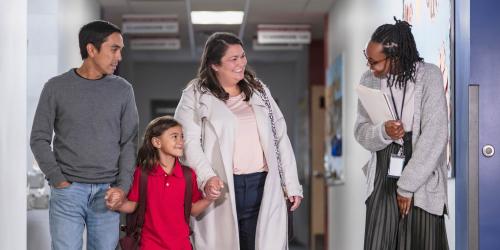Education Northwest has launched a new scholarship program for Native educators called The Steven R. Nelson Native Educator Scholarship Program.
As we approach our 50th anniversary, we are running a series on the work we do with the five states that make up our region. This post looks at how Idaho is changing and what’s needed to meet the demands of an evolving workforce.
Although discipline disparities along racial and gender lines have gained increasing attention in recent years, students with disabilities are not always a part of the conversation.
English learner students face significant challenges in meeting the new Common Core State Standards.
Researcher Vicki Nishioka frames alarming statistics for out-of-school suspensions and discipline disparities in preschool programs with a set of practices that can help schools end the problem.
Do English learner students miss more class time due to discipline than their non-English learner peers? Art Burke examines this and other questions in his newly published REL Northwest study.
What skills can preschoolers learn that will ultimately help them get into college? It may sound surprising, but research suggests even very young children are already developing skills that will help them later in life.
As economic forces shift in rural areas, how can creating expanded educational opportunities in science, technology, engineering, and math make a difference for rural students?
Offering a few key strategies taken from the preschool years for educators to help promote family involvement in students’ education.
Kindergarten transitions are important for children to succeed in school and later in life. What do principals need to know to help their youngest students thrive?
Attracting and keeping teachers in our hard-to-serve schools can help prepare all our students to be productive members of society in the 21st century.
According to recent data from the National Center for Education Statistics, one in three students in Alaska, Idaho, Montana, Oregon, and Washington is now a member of a racial/ethnic minority group.
When schools get an influx of English learners, what can principals do to help ensure their academic success?
A substantial body of research shows the knowledge, skills, habits, and dispositions toward school and learning that students bring with them on their first day of ninth grade have a large impact on their success throughout their high school career.
On the most recent National Assessment of Educational Progress, only 24 percent of students in grades 8 and 12 scored at or above proficient level, lower than our students’ performance in reading and mathematics.















